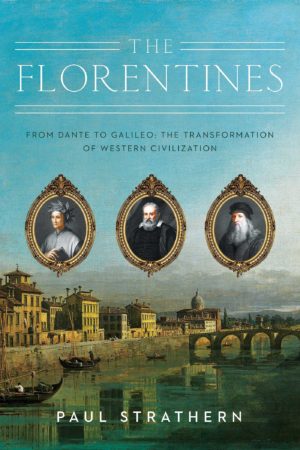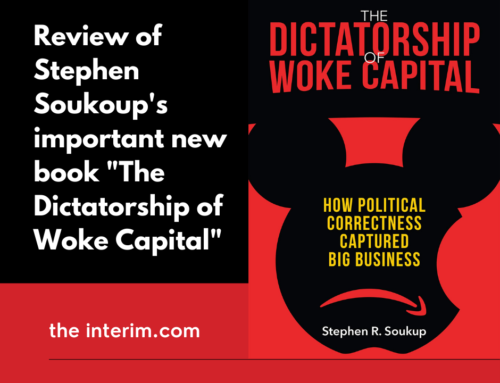The Florentines: From Dante to Galileo: The Transformation of Western Civilization
Paul Strathern (Pegasus Books, $38.95, 371 pages)
 The recovery of common sense for a culture gone haywire requires that we know and understand what makes our civilization great, which by definition includes knowledge of our history. Novelist and historian Paul Strathern (The Venetians, The Medicis), has written a marvelous, wide-ranging, and accessible history of Florence and the historical giants from the city that have influenced the course of western civilization. Strathern argues that the secret sauce of Florence’s success was its compact size and small population — a manageable and humane scope for a city — combined with its openness to new ideas from other places. It was wealthy enough to support a flourishing culture for artists and thinkers, but not large enough to be self-sufficient and therefore it had to interact with other peoples. It may not be a coincidence that for most of its history Florence was a democratic (relative to its age) republic. The combination of these factors meant that a culture conducive to the development of geometry, banking, architecture, and painting flourished, and thus so did business and the arts. Florence has produced an impressive array of historically important figures: Botticelli, Brunelleschi, Dante, Galileo, Giotto, Leonardo da Vinci, Machiavelli, Michelangelo, and the Medicis, to name just a few, and Strathern examines each of them (and more). My favourite story is how the assassination attempt on Lorenzo the Great, orchestrated by Pope Sixtus IV, led, eventually, to Michelangelo being sent to the Vatican where he would paint the ceiling of the Sistine Chapel. There should be more history books like The Florentines to delve in specific time periods and geographic locations. It is not just the intrinsically interesting period that Strathern delves into that makes this a truly excellent book, but his skill at understanding and connecting the people and ideas of the time.
The recovery of common sense for a culture gone haywire requires that we know and understand what makes our civilization great, which by definition includes knowledge of our history. Novelist and historian Paul Strathern (The Venetians, The Medicis), has written a marvelous, wide-ranging, and accessible history of Florence and the historical giants from the city that have influenced the course of western civilization. Strathern argues that the secret sauce of Florence’s success was its compact size and small population — a manageable and humane scope for a city — combined with its openness to new ideas from other places. It was wealthy enough to support a flourishing culture for artists and thinkers, but not large enough to be self-sufficient and therefore it had to interact with other peoples. It may not be a coincidence that for most of its history Florence was a democratic (relative to its age) republic. The combination of these factors meant that a culture conducive to the development of geometry, banking, architecture, and painting flourished, and thus so did business and the arts. Florence has produced an impressive array of historically important figures: Botticelli, Brunelleschi, Dante, Galileo, Giotto, Leonardo da Vinci, Machiavelli, Michelangelo, and the Medicis, to name just a few, and Strathern examines each of them (and more). My favourite story is how the assassination attempt on Lorenzo the Great, orchestrated by Pope Sixtus IV, led, eventually, to Michelangelo being sent to the Vatican where he would paint the ceiling of the Sistine Chapel. There should be more history books like The Florentines to delve in specific time periods and geographic locations. It is not just the intrinsically interesting period that Strathern delves into that makes this a truly excellent book, but his skill at understanding and connecting the people and ideas of the time.




